Top Rankings
Fallsburg Central School District ranks among the top 20% of public school district in New York for:
Category
Attribute
Diversity
Most diverse schools (Top 1%)
For the 2025 school year, there is 1 public middle school serving 688 students in Fallsburg Central School District. This district's average middle testing ranking is 2/10, which is in the bottom 50% of public middle schools in New York.
Public Middle School in Fallsburg Central School District have an average math proficiency score of 31% (versus the New York public middle school average of 40%), and reading proficiency score of 27% (versus the 51% statewide average).
Minority enrollment is 75% of the student body (majority Hispanic), which is more than the New York public middle school average of 63% (majority Hispanic).
Overview
This School District
This State (NY)
# Schools
2 Schools
1,659 Schools
# Students
1,490 Students
890,054 Students
# Teachers
142 Teachers
83,739 Teachers
Student : Teacher Ratio
10:1
10:1
District Rank
Fallsburg Central School District, which is ranked #994 of all 1,015 school districts in New York (based off of combined math and reading proficiency testing data) for the 2021-2022 school year.
The school district's graduation rate of 70-74% has decreased from 75-79% over five school years.
Overall District Rank
#982 out of 1020 school districts
(Bottom 50%)
(Bottom 50%)
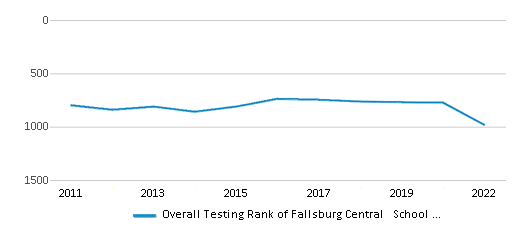
Math Test Scores (% Proficient)
22%
46%
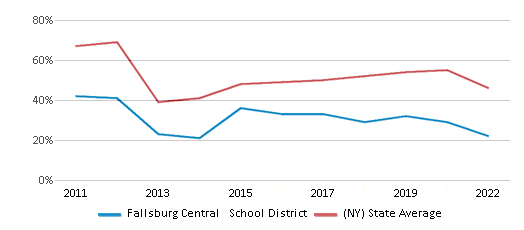
Reading/Language Arts Test Scores (% Proficient)
22%
49%
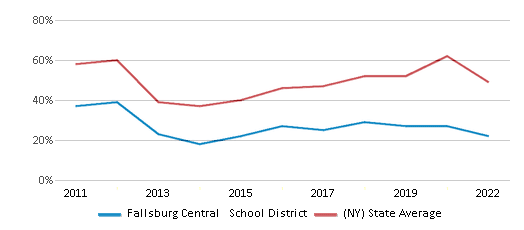
Science Test Scores (% Proficient)
55%
78%
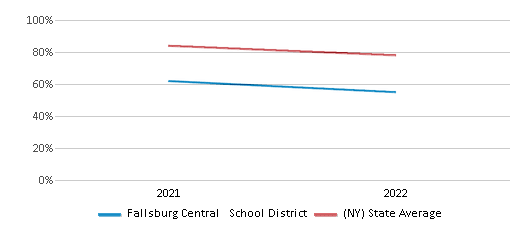
Graduation Rate
70-74%
87%
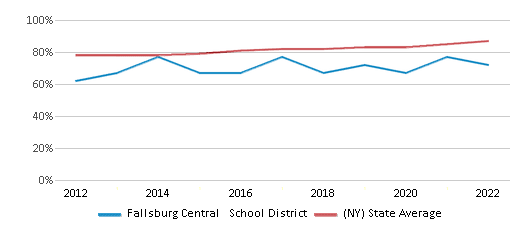
Students by Ethnicity:
Diversity Score
0.58
0.73
# American Indian Students
20 Students
7,222 Students
% American Indian Students
1%
1%
# Asian Students
15 Students
81,213 Students
% Asian Students
1%
9%
# Hispanic Students
884 Students
270,400 Students
% Hispanic Students
59%
30%
# Black Students
136 Students
175,155 Students
% Black Students
9%
20%
# White Students
366 Students
325,608 Students
% White Students
25%
37%
# Hawaiian Students
n/a
2,099 Students
% Hawaiian Students
n/a
n/a
# Two or more races Students
69 Students
28,478 Students
% of Two or more races Students
5%
3%
Students by Grade:
# Students in PK Grade:
38
8,468
# Students in K Grade:
94
26,528
# Students in 1st Grade:
116
28,304
# Students in 2nd Grade:
108
28,365
# Students in 3rd Grade:
116
27,931
# Students in 4th Grade:
112
29,265
# Students in 5th Grade:
113
43,975
# Students in 6th Grade:
104
157,405
# Students in 7th Grade:
111
185,375
# Students in 8th Grade:
119
188,665
# Students in 9th Grade:
118
40,472
# Students in 10th Grade:
108
36,147
# Students in 11th Grade:
109
33,448
# Students in 12th Grade:
122
33,009
# Ungraded Students:
2
22,697
District Revenue and Spending
The revenue/student of $32,305 is higher than the state median of $31,307. The school district revenue/student has stayed relatively flat over four school years.
The school district's spending/student of $33,905 is higher than the state median of $32,183. The school district spending/student has stayed relatively flat over four school years.
Total Revenue
$48 MM
$78,541 MM
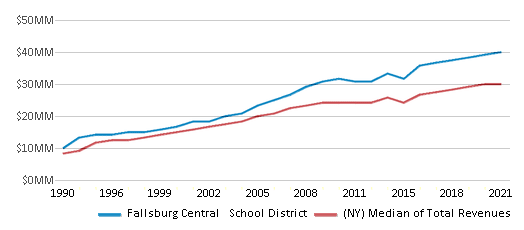
Spending
$51 MM
$80,737 MM
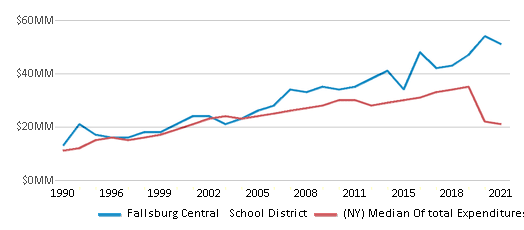
Revenue / Student
$32,305
$31,307
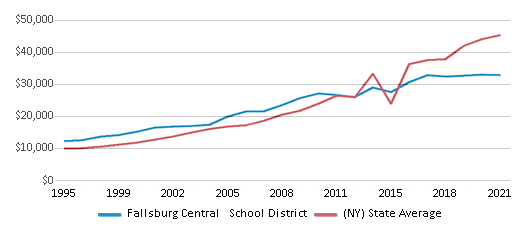
Spending / Student
$33,905
$32,183
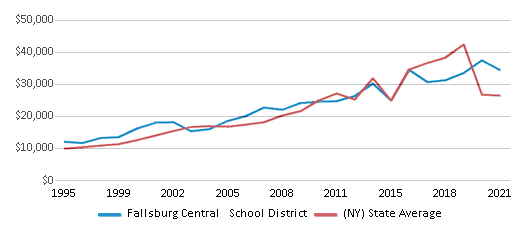
Best Fallsburg Central School District Public Middle Schools (2025)
School
(Math and Reading Proficiency)
(Math and Reading Proficiency)
Location
Grades
Students
Rank: #11.
Fallsburg Junior Senior High School
(Math: 31% | Reading: 25-29%)
Rank:
Rank:
3/
Bottom 50%10
115 Brickman Rd
Fallsburg, NY 12733
(845) 434-6800
Fallsburg, NY 12733
(845) 434-6800
Grades: 7-12
| 688 students
Recent Articles

Year-Round Or Traditional Schedule?
Which is more appropriate for your child? A year-round attendance schedule or traditional schedule? We look at the pros and cons.

Why You Should Encourage Your Child to Join a Sports Team
Participating in team sports has a great many benefits for children, there is no doubt. In this article you will learn what those benefits are.

White Students are Now the Minority in U.S. Public Schools
Increasing birth rates among immigrant families from Asia and Central and South America, combined with lower birth rates among white families, means that for the first time in history, public school students in the United States are majority-minority. This shift in demographics poses difficulties for schools as they work to accommodate children of varying language abilities and socio-economic backgrounds.





